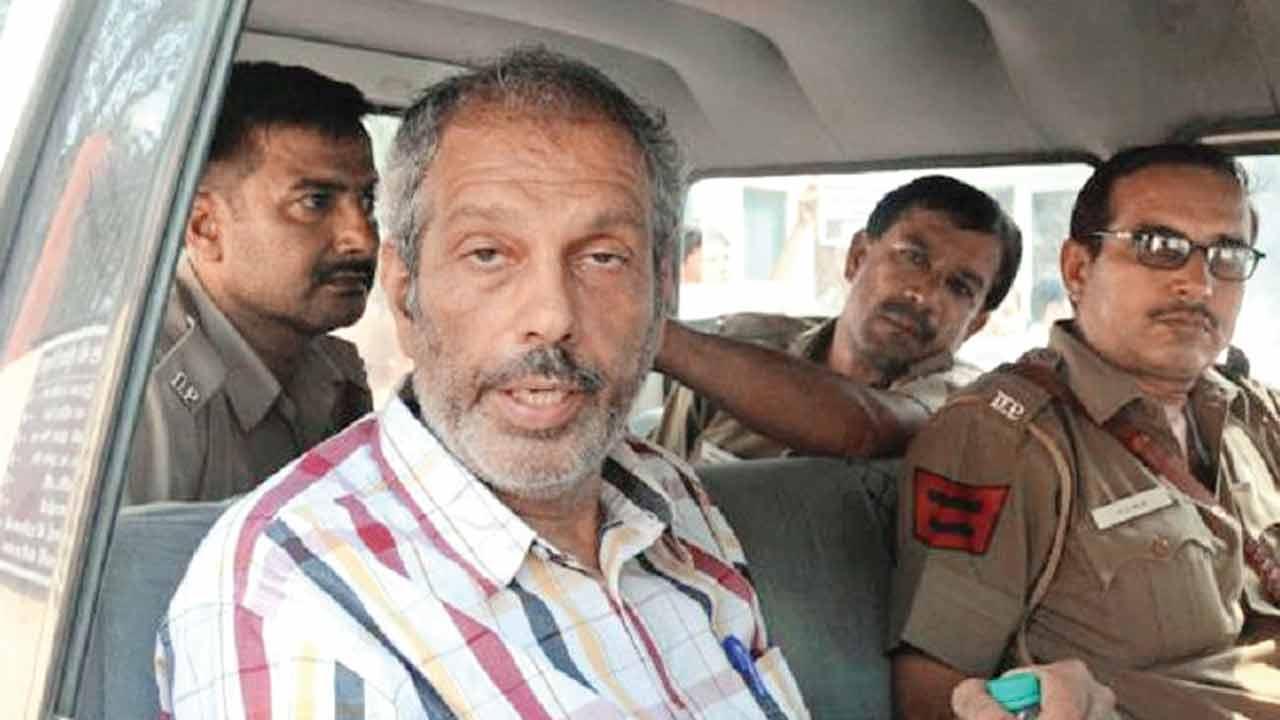Kobad Ghandy is one alumnus of the prestigious school who did not choose a life of luxury, and neither of silence. Instead, he has provided us with an alternative way of living and imagining success

Kobad Ghandy burst into headlines in September 2009, after he was arrested in Delhi under the Unlawful Activities (Prevention) Act for being a politburo member of the banned Communist Party of India (Maoist)
The prestigious Doon School should have Kobad Ghandy as the chief guest at its next Founder’s Day, which is graced, usually, by luminaries who are considered a paragon of success. Ghandy is their very antithesis. He burst into headlines in September 2009, after he was arrested in Delhi under the Unlawful Activities (Prevention) Act for being a politburo member of the banned Communist Party of India (Maoist). He spent the next seven years in Delhi’s Tihar Jail, was acquitted in 2016, and then shifted from one jail to another in over five states where he was entangled in court cases. Ghandy was released on bail in October 2019; he still has 10 cases pending against him. Yet his spirit shines, as it does in his recently published book, Fractured Freedom: A Prison Memoir.
ADVERTISEMENT
The suggestion to make Ghandy the chief guest is to not instigate the Doon School into mocking the State for victimising its alumnus, but because his life epitomises an alternative way of living — and imagining success. How many Doscos, the term used for Doon School alumni, do you know who shunned the life of luxury to live in squalid bastis, to organise them in the battle for a more equal, democratic India?
Consider this: Ghandy’s father retired as the finance director of GlaxoSmithKline, a multinational pharmaceutical giant; his mother belongs to the family that still owns Pakistan’s famous Murree Brewery. Ghandy’s classmates included Mrs. Indira Gandhi’s son, Sanjay, Congress leader Kamal Nath, and Odisha Chief Minister Naveen Patnaik. After passing out of the Doon School, he did his BSc from Mumbai’s St Xavier’s College. He was then devoid of social consciousness, engaged in playing golf, chess or swimming at the Willingdon Club. He flew to London in 1968 to do chartered accountancy, in preparation for a career in the corporate sector. And then came the awakening!
Stunned by the discrimination against Indians, Ghandy took to fathoming the roots of racism, poring over books, participating in discussions with communists, and organising corner meetings. One such meeting was attacked by white racists, but the police arrested Ghandy and two others. Presented before a judge, he lectured the court on the link between racism, colonialism and capitalism. The judge shouted, “Lock this man up, he is dangerous!” He was, for three months. On his release, he returned to Mumbai, and took to working in the slum at Mayanagar, Worli.
Dalits dominated Mayanagar, where he organised the youth, held classes in the “Alternative University” of the Janshakti faction of Maoists, and devoured the writings of Dr BR Ambedkar, convinced that “let alone racism, casteism is worse than slavery.” Ghandy participated in the cultural revolt of the Dalit Panthers, and in the movement against the Emergency. He married Anuradha Shanbag, whose parents were communists, and established the Committee for the Protection of Democratic Rights. Ghandy quotes journalist Jyoti Punwani, perhaps too embarrassed to speak on his own, about his and Anuradha’s lifestyle: “They weren’t social workers who visited slums while servants looked after their homes. From sweeping to washing up, these wealthy 20-somethings did it all themselves.” He underwent vasectomy to ensure a child did not distract them from working for the poor.
The couple shifted to Nagpur in 1982, where they were further de-classed as they could only afford a tenement with a leaky roof, under which they would place a bucket and spend the night emptying it out. Then they shifted to Indora, a sprawling Dalit basti, and travelled around in Vidarbha organising bidi and coal mine workers, students and women to fight for their rights. In the crucible of struggle, what confounded him – and still does – was the failure of Indian communists to realise the importance of abolishing caste.
In 2000, the couple shifted to Mumbai, where Anuradha died eight years later, rather suddenly, the memory of her lying in a hospital bed playing on loop during the interrogation after Ghandy’s arrest in 2009, numbing him from feeling frightened at the fate awaiting him. Over the next decade, he shared jail space with dons, politicians, militants and fundamentalists. Ghandy portrays a stirring picture of Afzal Guru, who was hanged for his role in the 2001 attack on Parliament. Ghandy’s own experience dissuades him from believing Guru was guilty. After all, a case was made out against Ghandy on the basis of a confession he never made – and to which he never appended his signature.
Did Ghandy regret the life he chose? No, he says, but suggests the communists should shift the goalpost from just “fighting inequality” to “happiness for all” – and also realise that Karl Marx’s goal was to reclaim humanism from the ravages of the capitalist system. He has no doubt that only a derivative of communism can save humans. To those who ask him why he, unlike others of genteel background, did not grow out of his idealism, to settle down with a family and jobs, Ghandy asks: Can one remain a silent spectator to the excruciating poverty and vicious discrimination? He answers, “To remain silent, after all, means consent.” This is what the students of elite institutions like the Doon School need to know.
The writer is a senior journalist. Send your feedback to [email protected]
The views expressed in this column are the individual’s and don’t represent those of the paper.
 Subscribe today by clicking the link and stay updated with the latest news!" Click here!
Subscribe today by clicking the link and stay updated with the latest news!" Click here!






